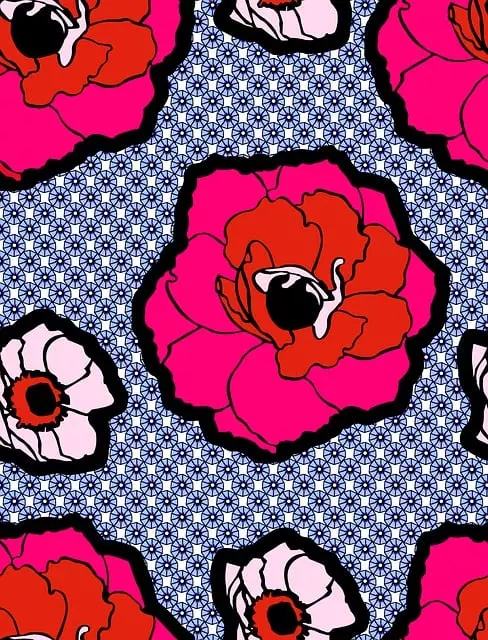Muscle soreness post-exercise is often due to muscle fiber tears known as DOMS, which typically occur 24-72 hours after physical activity. The body naturally repairs these tears, and during this process, pain relief may be necessary. Kratom, an herbal supplement from Southeast Asia with analgesic properties, has been suggested to help with pain relief and muscle relaxation alongside rest and sleep for effective recovery. Its compounds, mitragynine and 7-hydroxymitragynine, can interact with opioid receptors in the brain to provide these benefits. When combined with melatonin, which enhances tissue repair and growth hormone secretion during deep sleep and reduces inflammation, the healing process is amplified. This synergy between kratom and melatonin offers a promising option for optimizing recovery by promoting pain management and natural healing processes. It's important to adhere to safe dosage ranges and consult healthcare professionals before incorporating these supplements into a recovery regimen, especially for individuals with health concerns or those taking other medications, to ensure the benefits are maximized while minimizing potential side effects.
Muscle soreness can be a formidable hindrance to one’s fitness journey or daily activities, often arising from intense physical exertion or medical conditions. Exploring natural remedies, this article delves into the potential of kratom and melatonin for mitigating such discomfort. Kratom, traditionally used in Southeast Asian cultures, has garnered attention for its analgesic properties. Concurrently, melatonin’s role in regulating sleep patterns may synergize with kratom to enhance recovery, making it a compelling choice for those seeking relief without the side effects of conventional medications. Join us as we unravel the science behind muscle soreness, explore kratom’s therapeutic effects, and investigate the benefits of combining kratom with melatonin for superior pain management and sleep quality.
- Understanding Muscle Soreness and its Causes
- The Role of Kratom in Alleviating Muscle Soreness
- Combining Kratom with Melatonin for Enhanced Recovery and Sleep Quality
Understanding Muscle Soreness and its Causes

Muscle soreness, a common experience for many individuals, can arise from various activities ranging from intense exercise to daily physical tasks. This discomfort is often a result of microscopic tears in muscle fibers, a phenomenon commonly known as Delayed Onset Muscle Soreness (DOMS), which typically occurs 24-72 hours post-exertion. The body’s natural repair mechanisms are then set into motion to rebuild and strengthen the muscles, sometimes requiring support to alleviate the accompanying pain. Kratom, a tropical evergreen tree native to Southeast Asia, has been traditionally used in its indigenous regions for its medicinal properties, including analgesic effects. Its active compounds, such as mitragynine and 7-hydroxymitragynine, may contribute to pain relief by interacting with the body’s opioid receptors. Additionally, some users report that kratom aids in muscle relaxation and recovery, potentially enhancing the effects of rest and sleep.
Complementary to kratom’s analgesic qualities, melatonin plays a significant role in muscle recovery. As a hormone that regulates the body’s circadian rhythm, melatonin not only improves sleep quality but also influences tissue repair and growth hormone secretion during deep sleep stages. Adequate sleep is crucial for muscle recovery; it allows for the regeneration of damaged tissues and the reduction of inflammation. Combining kratom with melatonin may provide a synergistic effect, promoting not only pain relief but also enhancing the body’s natural healing processes through improved sleep quality and duration. This holistic approach can be particularly beneficial for individuals experiencing muscle soreness from strenuous activities or as part of a post-exercise recovery regimen.
The Role of Kratom in Alleviating Muscle Soreness

Kratom, a tropical tree native to Southeast Asia, has garnered attention for its potential therapeutic properties, particularly in the realm of muscle soreness relief. The alkaloids present in kratom leaves, such as mitragynine and 7-hydroxymitragynine, are believed to interact with the opioid receptors in the brain, thereby modulating pain perception. This interaction can provide a soothing effect on muscles that have been subjected to intense activity or injury, effectively alleviating soreness. Users often report that kratom helps them manage discomfort associated with muscle strain or exercise-induced fatigue.
When considering the use of kratom for muscle soreness, it’s often suggested to pair it with melatonin supplements. Melatonin, a hormone naturally produced by the body, regulates sleep-wake cycles and has anti-inflammatory properties that can enhance the healing process. By combining kratom with melatonin, individuals may experience an improved ability to relax and recover, as the synergistic effect can potentially reduce inflammation and promote a more restful state conducive to repair. This combination is particularly beneficial for athletes or those who engage in regular physical activity looking to mitigate post-exercise muscle soreness and expedite recovery times. As with any supplement regimen, it’s crucial to adhere to recommended dosages and consult with healthcare professionals to ensure safe and effective use.
Combining Kratom with Melatonin for Enhanced Recovery and Sleep Quality

When it comes to muscle soreness, particularly after an intense workout or physical activity, individuals often seek effective relief solutions. Kratom, a plant-based alkaloid derived from the leaves of Mitragyna speciosa, has gained attention for its potential pain-relieving properties. Users report that kratom can help alleviate muscle soreness due to its analgesic effects. However, for optimal recovery and sleep quality, combining kratom with melatonin can be particularly beneficial. Melatonin, a hormone naturally produced by the body, regulates the sleep-wake cycle. By taking melatonin along with kratom, individuals may enhance their recovery process as the combined action promotes better sleep. This synergy is crucial for muscle repair and growth, as restorative sleep is essential for the body to recover and rebuild after physical exertion. The melatonin supplement helps ensure a more profound and uninterrupted sleep, while kratom’s pain-reducing effects can soothe sore muscles, leading to an overall improved recovery experience. Users experiencing muscle soreness may find that this combination allows for a more restful night’s sleep, which is critical for the body to heal and prepare for the next day’s activities. It’s important to note the appropriate dosages of both kratom and melatonin should be carefully considered to achieve the desired effects without potential side effects. Users should also consult with healthcare professionals before integrating these substances into their recovery routine, especially if they have underlying health conditions or are taking other medications.
Muscle soreness can significantly hinder recovery and overall well-being, particularly after intense physical activity. The article has explored the multifaceted nature of muscle soreness, its causes ranging from acute injuries to overuse or strenuous exercise. A key takeaway is the potential role of kratom in alleviating this discomfort. Derived from the leaves of Mitragyna speciosa, kratom interacts with the body’s opioid receptors, providing pain-relieving properties that may be beneficial for muscle soreness relief. Additionally, the synergistic effects of combining kratom with melatonin have shown promise in not only mitigating pain but also improving sleep quality, a critical aspect of recovery. This combination may offer a holistic approach to post-exercise recovery and should be considered as a natural alternative by those seeking relief from muscle soreness. Always consult healthcare professionals before incorporating kratom or melatonin into your regimen to ensure safe use and appropriate dosing.






